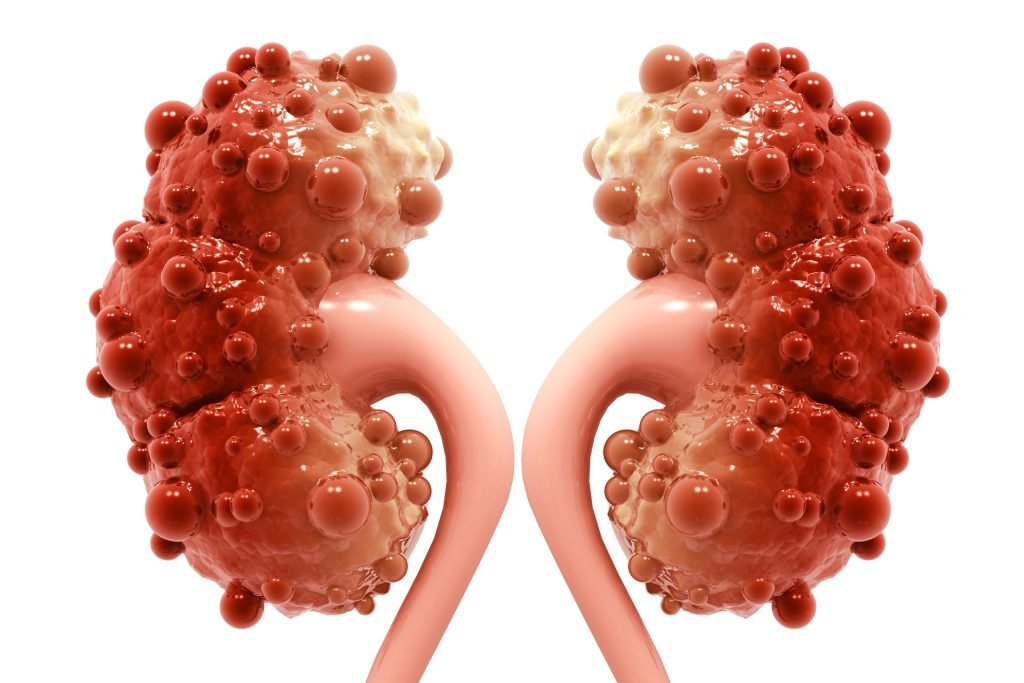Comprehensive Guide to Polycystic Kidney Disease (PKD): Causes, Symptoms, Diagnosis, and Management
Introduction Polycystic Kidney Disease
Polycystic Kidney Disease (PKD) is a genetic disorder that profoundly affects the kidneys, resulting in the development and enlargement of fluid-filled cysts. In this extensive guide, we will explore the multifaceted aspects of PKD, encompassing its causes, symptoms, diagnosis, and management. Our aim is to provide in-depth information and support for both those who have PKD and those seeking a comprehensive understanding of this condition.

Polycystic Kidney Disease, commonly referred to as PKD, is a hereditary disorder known for the formation of multiple cysts within the kidneys. These cysts are benign sacs filled with fluid. Over time, as these cysts multiply, the kidneys can undergo substantial enlargement and lose their functionality.
Causes and Risk Factors
PKD is primarily attributed to genetic mutations. There are two main forms of PKD: Autosomal Dominant Polycystic Kidney Disease (ADPKD) and Autosomal Recessive Polycystic Kidney Disease (ARPKD). ADPKD is more prevalent and usually emerges in adulthood, while ARPKD tends to manifest during childhood.
Genetic mutations are the driving force behind PKD. Mutations in two specific genes, PKD1 and PKD2, underlie the development of ADPKD. These genes encode proteins involved in the formation and maintenance of kidney structures. Mutations in either gene can lead to the formation of cysts. In the case of ARPKD, mutations in the PKHD1 gene are responsible for the condition.
Symptoms and Diagnosis
Symptoms of PKD can vary widely from one individual to another. Common signs include pain or discomfort in the abdomen, high blood pressure, blood in the urine, and frequent urinary tract infections. While PKD’s clinical manifestations typically begin in the third or fourth decade of life, it’s noteworthy that cysts may be detectable in childhood and even before birth.
A definitive diagnosis often involves medical imaging tests such as ultrasound, CT scans, or MRI scans. Imaging helps reveal the presence and extent of cysts within the kidneys and other organs. A family history of PKD can also be a crucial diagnostic clue, especially in the case of ADPKD.

Complications
PKD can give rise to numerous complications. These include kidney stones, hypertension (high blood pressure), kidney failure, and even heart problems. Understanding these potential complications is pivotal to managing the condition effectively. Regular monitoring and timely medical intervention can mitigate the risks associated with PKD.
Treatment and Management
While there is no cure for PKD, treatment strategies focus on mitigating the symptoms and complications that arise from the condition. Medications may be prescribed to control blood pressure and alleviate pain. In severe cases where kidney function has significantly deteriorated, kidney transplantation or dialysis may be necessary.
Lifestyle and Dietary Considerations
Maintaining a healthy lifestyle and dietary choices can greatly impact the quality of life for individuals with PKD. Staying well-hydrated, limiting sodium intake, and adhering to a balanced diet can be beneficial. Engaging in regular exercise and employing stress management techniques can also enhance overall well-being.
Support and Resources
Living with a chronic condition such as PKD can be challenging, both for the individuals affected and their families. However, there is an extensive network of resources and support groups available. These communities offer valuable information, emotional support, and a sense of belonging to those dealing with PKD. Reaching out to these support networks can make the PKD journey more manageable.
Research and Developments
The medical and scientific communities continually advance their understanding of PKD. There are ongoing research efforts to identify potential treatments and interventions to alleviate the impact of this condition. Emerging therapies, clinical trials, and breakthroughs in the field of genetics offer hope for improved outcomes for PKD patients.
PKD in Children
While PKD is more commonly associated with adulthood, it’s essential to recognize that this condition can affect children as well. Understanding the unique challenges and considerations related to pediatric PKD is crucial for parents and caregivers. Early diagnosis and appropriate management can make a significant difference in a child’s long-term health.
PKD and Family Planning
PKD has implications for family planning, as it is a genetic disorder that can be passed from one generation to the next. Genetic counseling and testing can be valuable for individuals who have a family history of PKD and are considering having children. These services can help individuals make informed decisions about their family’s future.
Conclusion:
Polycystic Kidney Disease is a complex genetic disorder that profoundly affects the kidneys and, in some cases, other organs. Understanding its causes, symptoms, diagnosis, and management is pivotal for individuals living with PKD and those supporting them. While there is currently no cure, early diagnosis and effective management can help individuals lead fulfilling lives despite the challenges posed by PKD.
With this extended guide, we aim to provide a comprehensive resource for individuals seeking information on PKD, from the basics of the condition to the latest developments in research and treatment. Remember to consult with healthcare professionals for personalized guidance and treatment options tailored to your specific needs.
1 Comment